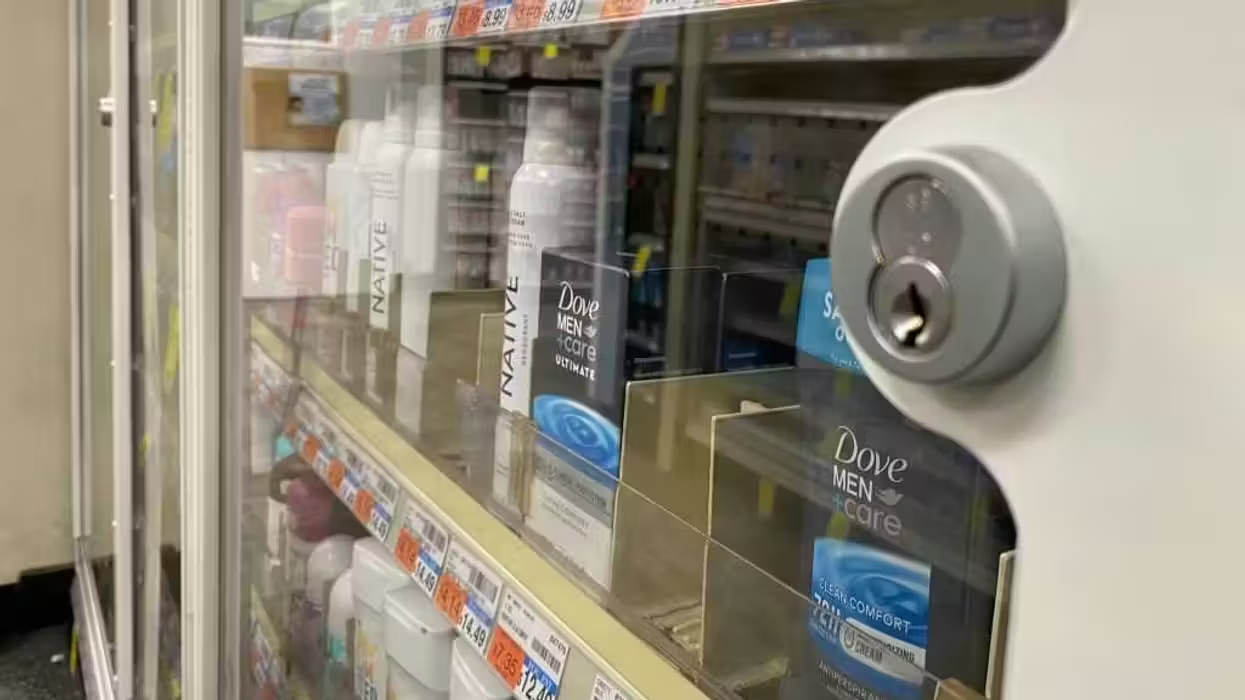
© 2026 Blaze Media LLC. All rights reserved.
"...there is a digital developmental divide.”
The American Association of Pediatrics is telling parents and babies to say bye-bye to Baby Einstein, Dora the Explorer, Sesame Street et al, at least until age 2.
A review of current research by AAP has caused the organization to revise its policy statement addressing TV viewership, to state that television has no benefit for children under 2 years of age. In fact, it could be detrimental.
Shows and videos that tout their educational nature, like Baby Einstein and anything mid-morning on PBS, according to AAP show no effect on children younger than 2 years and should not be marketed as such. Wired has more:
Since the AAP made its original recommendations in 1999, passive entertainment screens — televisions, DVD players, computers streaming video — have become ubiquitous, and the average 12-month-old gets between one and two hours of screen time per day. (Interactive screens, such as iPads and other tablets, are considered in the new recommendations.) The 0- to 2-year age group has become a prime target for commercial educational programming, often used by parents convinced that it’s beneficial.As screens proliferated, so did research. “There have been about 50 studies that have come out on media use by children in this age group between 1999 and now,” said Ari Brown, a pediatrician and member of the AAP committee that wrote the new report.
Those studies have found that children don’t really understand what’s happening on a screen until they’re about 2 years old. Once they do, media can be good for them, but until then television is essentially a mesmerizing, glowing box.
Time goes on to report that 90 percent of parents surveyed by AAP said their under 2-year-olds watched television and, of those, half saw it as important for education:
“There is a presumption by parents that TV is educational,” says Brown. “But the research we have seen has shown there is a digital developmental divide.”What that means, writ large, is that Sesame Street has been shown to contribute to improved language and social skills in children older than 2. But play the same programming for younger kids, says Brown, and they will actually have delayed language skills. Only children older than 2 demonstrate consistent comprehension.
Baby Einstein says on its website that it is aware of the ongoing research about children and television, especially the under 2 crowd, but states it believes their products are useful:
[...] while we respect the American Academy of Pediatrics, we do not believe that their recommendation of no television for children under the age of two reflects the reality of today's parents, families and households – for example, a recent Kaiser Family Foundation study found that 68 percent of all babies under 2 years old watch screen media on any given day. The Baby Einstein Company believes that when used properly, developmentally-appropriate video content can be a useful tool for parents and little ones to enjoy together.
Time also goes on to report that this is the first time AAP is addressing "second-hand" television watching:
In case you thought you could turn off Barney for your baby but keep the Bachelorette re-run buzzing in the background, think again. For the first time, the AAP statement weighs in on “secondhand TV,” the group's version of secondhand smoke. Up to 60 percent of families report that the television is always or often on, even when no one is watching. “When you think no one is really watching, someone is watching, and it's your child,” says Brown, citing research that shows young children playing with toys while an adult show is on will look up at the screen every 20 seconds.
Television use before the age of comprehension, according to AAP as reported by Wired, reduces the amount of time parents are talking and interacting with their children, limits unstructured playtime that promotes creativity and could cause sleep disturbances.
If parents do choose to let their children watch TV, according to AAP, the device should not be placed in their bedroom. AAP reports that 20 percent of under 2-year-olds already have their own TV.
AAP's new policy, announced at AAP National Conference & Exhibition, will be officially published in the journal Pediatrics in November.
Want to leave a tip?
We answer to you. Help keep our content free of advertisers and big tech censorship by leaving a tip today.
Want to join the conversation?
Already a subscriber?
more stories
Sign up for the Blaze newsletter
By signing up, you agree to our Privacy Policy and Terms of Use, and agree to receive content that may sometimes include advertisements. You may opt out at any time.
Related Content
© 2026 Blaze Media LLC. All rights reserved.
Get the stories that matter most delivered directly to your inbox.
By signing up, you agree to our Privacy Policy and Terms of Use, and agree to receive content that may sometimes include advertisements. You may opt out at any time.







